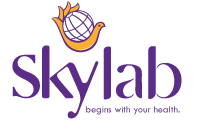No products in the cart.: ₹0.00
Hypertension
Hypertension is known as high blood pressure, scientifically defined as a condition in which the blood pressure exceeds 140/90 mm Hg and is considered as severe if the pressure reaches above 180/120 mm Hg.
- High Blood Pressure
- Hypertension Symptoms
- Hypertension Causes
- Who is at risk for hypertension?
- Hypertension Diagnosis
- Hypertension Range
- Hypertension Tests
- Hypertension Treatment
- Hypertension Questions
- Citations
High Blood Pressure:
High blood pressure occurs when blood flows against the artery walls is very high. Generally, we do not feel anything different with high blood pressure, but if it’s not treated, it may cause severe health conditions like cardiovascular diseases and heart strokes over time.
Following a healthy diet pattern with less salt intake, regular engagement in physical activities, and regular exercise can help in reducing blood pressure levels.
Based on the doctor/physician’s suggestion, few medications can be used in lowering blood pressure levels. Although, do not opt for any medicines without a doctor’s prescription.
Hypertension Symptoms:
Hypertension does not show any symptoms or signs until and unless hypertension gets very severe because high blood pressure is usually asymptomatic.
Regular health checkups are suggested to keep a track of your blood pressure levels.
Here are 10 hypertension symptoms:
- Breathlessness
- Non-uniform heartbeat
- Nose bleeding
- Confusion
- Pounding in the ears, neck, or chest
- Severe headaches
- Vision problems
- Blood in urine
- Fatigue
- Chest pain
Hypertension Causes:
Blood pressure is the evaluation of blood force that pushes against the arterial walls. The heart beats and pumps blood into the blood vessels and then carries it throughout the human body.
Commonly hypertension is known as high blood pressure, it’s a severe condition because it pressurizes the heart to work harder.
As a result, it increases the blood flow to the body, which results in the hardening of the arteries, leading to the conditions like atherosclerosis, heart strokes, chronic kidney diseases, and heart failure.
Causes of hypertension can be due to various reasons however the exact cause of hypertension is not defined.
Here are the 11 most common hypertension causes:
- Genetic inheritance
- Old age
- Obesity
- Smoking
- Excess alcohol consumption
- Stress and anxiety
- Excess salt consumption
- Lack of physical activity
- Conditions like sleep apnea, hypothyroidism, etc
- CKD – chronic kidney disease
- A family history of hypertension
Hypertension Diagnosis:
Regular monitoring of blood pressure is the only best way to diagnose hypertension. This is mandatory if one has experienced it before or has a family history of hypertension.
Doctors recommend that individuals aged above 18 years should be screened for hypertension every once in 3-6 months to treat it while it gets severe.
Hypertension Range:
Hypertension Stage Range Details
Normal blood pressure < 120/80 mm Hg The usual range of our blood pressure is below 120/80 mm Hg.
Prehypertension Systolic: 120 to 129 mm Hg
Diastolic: < 80 mm Hg Prehypertension, a systolic pressure ranges from 120 to 129 mm Hg, and a diastolic pressure going below 80 mm Hg.
Hypertension Stage 1 Systolic: 130 – 139 mm Hg
Diastolic: 80 – 89 mm Hg Hypertension Stage 1 is when systolic pressure ranges from 130-139 mm Hg or diastolic pressure ranges from 80-89 mm Hg.
Hypertension Stage 2 Systolic: ≥ 140 mm Hg
Diastolic: ≥ 90 mm Hg Hypertension Stage 2 of hypertension is more severe. An individual is in stage 2 hypertension when a systolic pressure of 140 mm Hg or higher. Diastolic pressure of 90 mm Hg or reaches higher.
Hypertensive crisis > 180/120 mm Hg A condition in which the blood pressure measurements reach higher than 180/120 mm Hg and are an emergency requiring immediate medical care. If you come by such a result measuring your blood pressure at home, wait for five minutes and go for a retest. If it still appears to be the same or you experience problems like chest pain, numbness, breathlessness, vision problems, or weakness, call for medical help immediately.
Blood pressure regulates from time to time throughout the day in response to the factors like body fluid status, anxiety levels, activity level, and other contributing factors.
An average of blood pressure readings will give an exact picture of the blood pressure status. Healthcare providers or doctors may often ask for a blood or urine test to suspect secondary hypertension.
Hypertension Tests:
Ambulatory monitoring:
24-hour blood pressure monitoring test helps in diagnosing high blood pressure levels. The ambulatory monitoring device records the blood pressure readings at specific intervals over 24 hours. As a result, it gives a more accurate idea of blood pressure changes in the body over a day.
Lab tests:
The patient might be suggested a urine test known as urinalysis or a blood test that includes a cholesterol test.
Electrocardiogram:
Most commonly known as ECG or EKG, this test is quick and painless and measures the heart’s electrical activity and presents it in the form of a graph.
Echocardiogram:
A cardiologist may suggest an echocardiogram to check for more signs of heart disease depending on your signs and symptoms and test results. This test uses sound waves to develop images of the human heart.
Hypertension Treatment:
Lifestyle Modifications:
Modifying your lifestyle will help in controlling your blood pressure levels. Here are 5 best-suggested lifestyle changes for hypertension:
- Following a heart-healthy diet and healthy fats intake
- Reduce salt intake
- Regular physical activities
- Maintain ideal body weight
- Reduce intake of alcohol and smoking
Medication:
The doctor may prescribe medicine to control hypertension based on the severity levels,
- Following a heart-healthy diet and healthy fats intake
- Reduce salt intake
- Regular physical activities
- Maintain ideal body weight
- Reduce intake of alcohol and smoking
Hypertension Questions:
- What type of diet should I follow if I have hypertension?
- When should I consult a doctor about hypertension?
- What Is the Treatment for High Blood Pressure?
What type of diet should I follow if I have hypertension?
A healthy diet is effective in helping to lower hypertension (high blood pressure. The diet includes daily servings from various food groups, including fruits, vegetables, and whole grains.
Here are a few diet options for Hypertension:
- Eating more fruits, vegetables, and low-fat dairy foods
- Eating more whole grain products, fish, poultry, and nuts
- Eating less of foods that are high in saturated fat and cholesterol, such as fried foods
- Eating less hard meat and sweets
- Eating foods with less sodium
When should I consult a doctor about hypertension?
If you are diagnosed with hypertension, it is suggested to consult a doctor regularly and follow the prescribed treatment.
Even during the treatment course, consult a doctor regularly so the doctor can analyze the progress.
If in case you have any side effects with the prescribed hypertension medication, the doctor can change the medication course/dosage.
What Is the Treatment for High Blood Pressure?
Lifestyle changes are key to keeping normal blood pressure. Most doctors will suggest them before prescribing drugs. Lifestyle changes are also the recommended treatment for elevated blood pressure, a condition in which blood pressure readings are higher than 120 (systolic) over 80 (diastolic), and regularly over 130/80.
You can read more about, Hypertension Treatment


